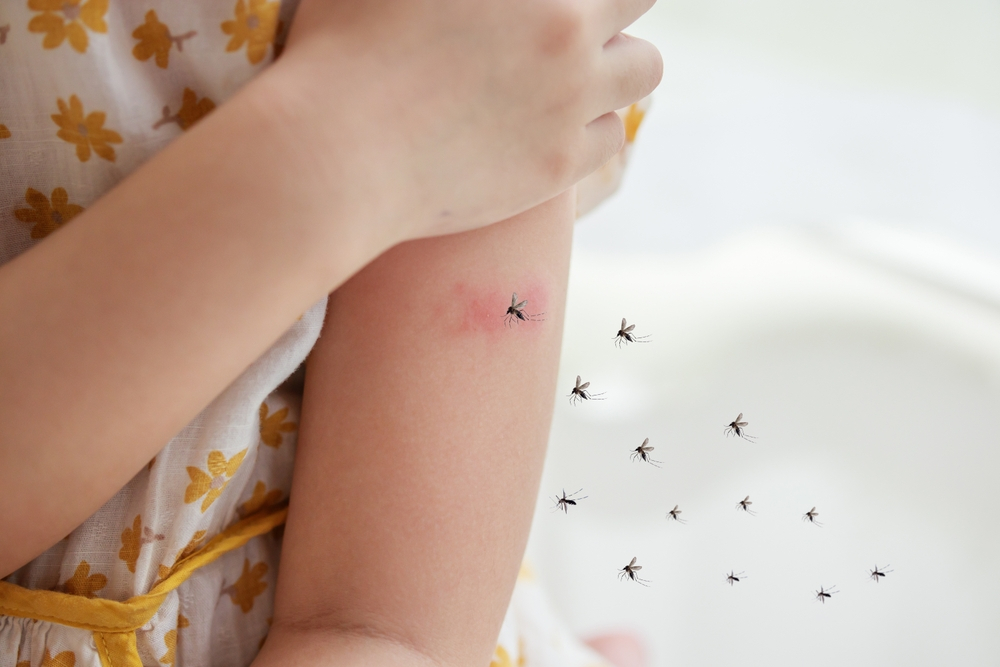The United Arab Emirates (UAE) is experiencing intense rain, which has raised fears about the number of dengue virus cases increasing. In areas with warm temperatures and plenty of rainfall, dengue fever, a virus spread by mosquitoes poses a serious risk to human health. Within this blog, we explore the causes of dengue fever, the risks associated with the disease, and effective tips to prevent its transmission.

What Causes Dengue?
The dengue virus, which causes dengue fever, is mostly spread to people by the bites of infected Aedes mosquitoes, especially Aedes aegypti and Aedes albopictus.These mosquitoes are frequently seen in tropical and subtropical areas.They are especially abundant in metropolitan areas where they reproduce in flower pots, containers, and waste tires, among other stagnant water sources.
Within the Flaviviridae family, the dengue virus is classified into four different types: DEN-1, DEN-2, DEN-3, and DEN-4. Lifelong immunity to that particular strain is provided by infection with one type, but it offers no defence against infection with other variants. Serious consequences, including some that might be fatal, can arise from recurrent infections with distinct types of dengue, including dengue hemorrhagic fever and dengue shock syndrome.
Risks Associated with Dengue Fever:
A variety of symptoms are associated with dengue fever, such as a high temperature, severe headache, pain in the joints and muscles, nausea, vomiting, and an unusual skin rash. While the majority of dengue fever infections only cause moderate sickness, more severe instances can result in fatalities, severe bleeding, and organ failure, especially in vulnerable individuals including elderly people, newborns, and young children.
High mosquito populations increase the risk of catching dengue fever, especially during the rainy season when there are plenty of mosquito breeding grounds. The spread of dengue fever has been facilitated by urbanisation, population increase, and climate change, raising concerns for public health around the world.
Effective Tips to Prevent Dengue:
Preventing dengue fever primarily involves reducing mosquito breeding sites and minimising mosquito bites. Here are some effective strategies to protect yourself and your community from dengue:
Avoid water that remains: Regularly empty and clean water containers, flower pots, and other potential mosquito breeding sites around your home. Cover water storage containers to prevent mosquitoes from accessing them.
Use Mosquito Repellents: Apply DEET, picaridin, or oil of lemon eucalyptus on exposed skin and clothes. To keep mosquitoes out of your house, install mosquito netting or screens on windows and doors.
Wear Protective Clothing: When spending time outside, wear long-sleeved shirts, long trousers, socks, and shoes, particularly at dawn and twilight, when mosquitoes are most active.
Support Vector Control Efforts: Participate in community-based vector control programmes aiming at lowering mosquito populations by killing, fogging, and environmental management.
Seek Medical Attention: If you have dengue fever symptoms including fever, headache, body pains, or a rash, see your doctor. Early detection and timely treatment can assist to avoid problems and improve results.
Conclusion:
Heavy rains raises the danger of dengue fever in the UAE and other impacted areas, hence it is critical to promote knowledge about the disease’s causes and effective preventative techniques. Individuals may lower their risk of dengue fever and contribute to the collaborative efforts to battle this avoidable disease by implementing mosquito control measures, using personal protective equipment, and seeking prompt medical care. Let us work together to safeguard our communities against dengue fever and create a better, safer future for everybody.
Remember, Safe Hands Home Healthcare is here for you 24/7, providing support and care whenever you need it. Together, let’s prioritise health and well-being, providing a brighter tomorrow for everyone.

